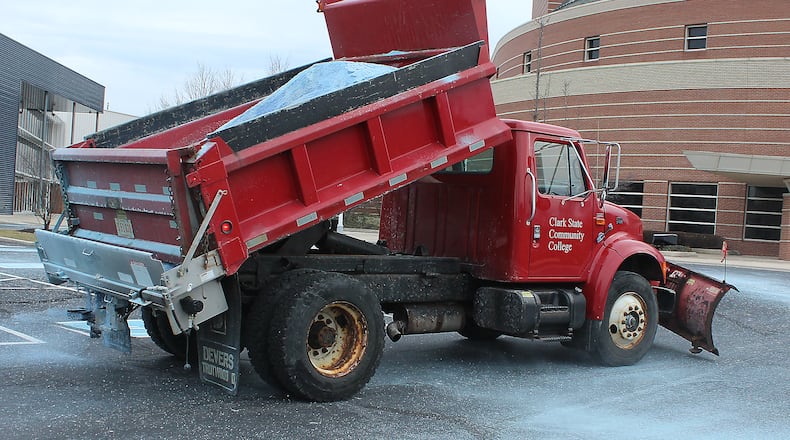Those salt mines beneath Cleveland and Avery Island, La., are made of rock salt deposits hundreds of feet thick and naturally very gray in color.
RELATED: Road salt takes long trip to get to Clark County
Think about it. Rock salt comes from the evaporation of inland seas and those seas were not perfectly clean. There was mud, sand, vegetation, etc. stirred up in that water, just like in lakes today, and that stuff did not go away when the water evaporated. It was mixed in with the salt. Hence rock salt is grayish.
The salt on our tables has been purified. It is salt in its pure state and if you could magnify even the smallest flecks of salt in the shaker you could see perfectly clear cubes or blocks. That is the way the atoms always “stack up” in a halite crystal.
But there is no need to purify road salt. We are not eating it, and it has a different job to do.
The ice melting process is not magical. It is simple chemistry. Salt, when dissolved in water, lowers the freezing temperature of the water. Water turns into ice at 32 degrees Fahrenheit (zero degrees Celsius for our science minded or Canadian friends) but salty water can stay liquid at lower temperatures. Depending upon the amount of salt added, the freezing temperature can be lowered considerably, but not enough for the really cold days. Even the oceans eventually get cold enough to freeze.
To enhance the ice fighting skills of salt, a variety of chemicals are added to the salt. Some of these are blue. I’ve even seen pink ice in some regions. Sometimes the salt and chemicals are dissolved in a very salty spray called brine, which is used to pre-treat roads before the storm and keep ice from forming.
Some road crews even add sand or cinders to the rock salt mixture if it looks like the temperatures are going below the capabilities of the salt mixtures.
Keeping our roads open is a science. Township, city, county, and state garages will keep a variety of piles of various combinations and mixtures. They load their trucks and plows with the best mixture for the road conditions. It is not easy work, but it is essential.
So when you make a cup of hot cocoa be sure to spear the marshmallow with a tropical drink umbrella and lift your mug to salute those who sprinkle our roads with the remnants of tropical seas. They deserve our appreciation for staying up all night and all day to keep our roads open and safe.
About the Author
